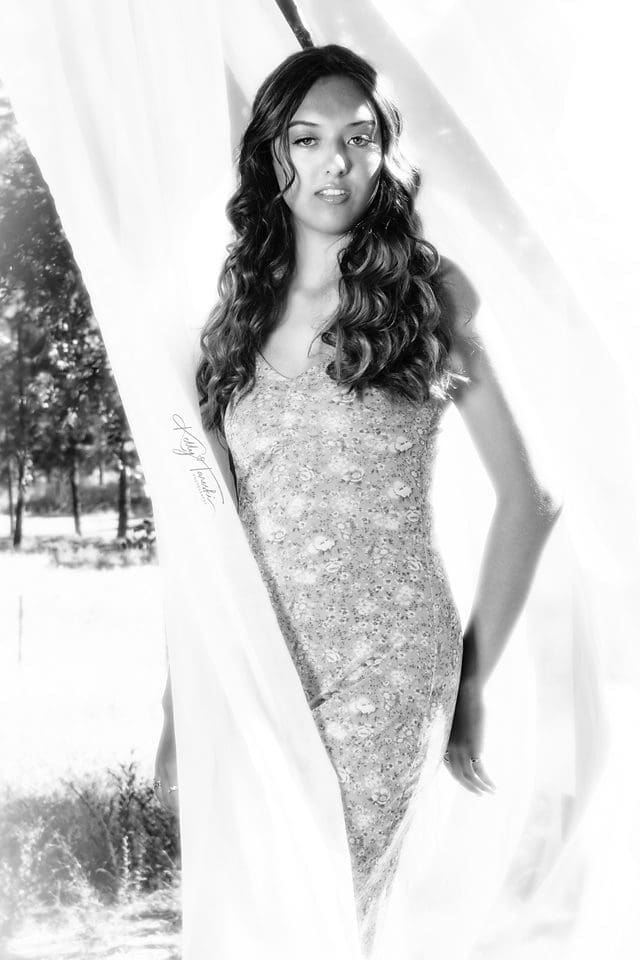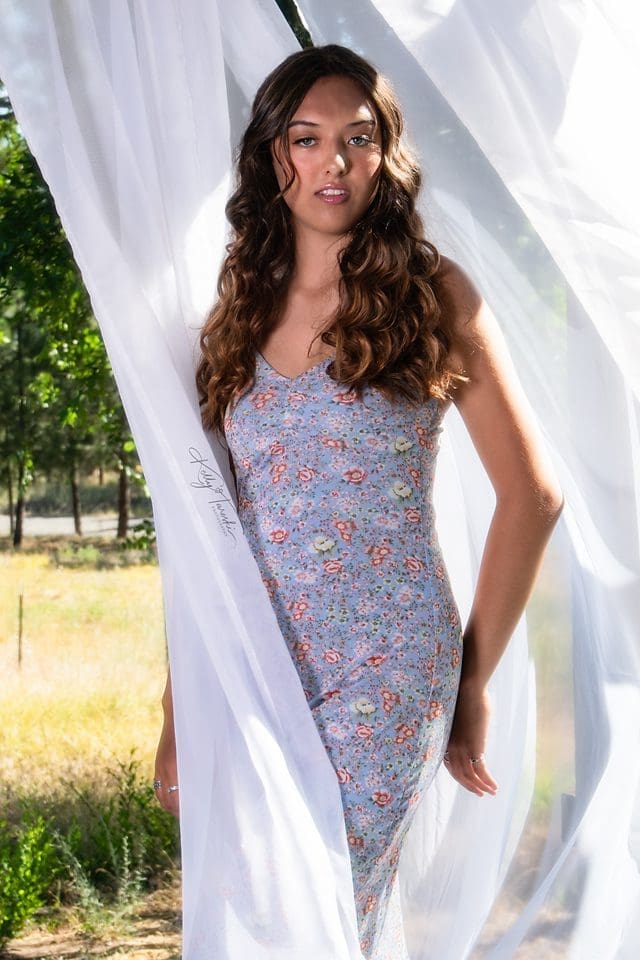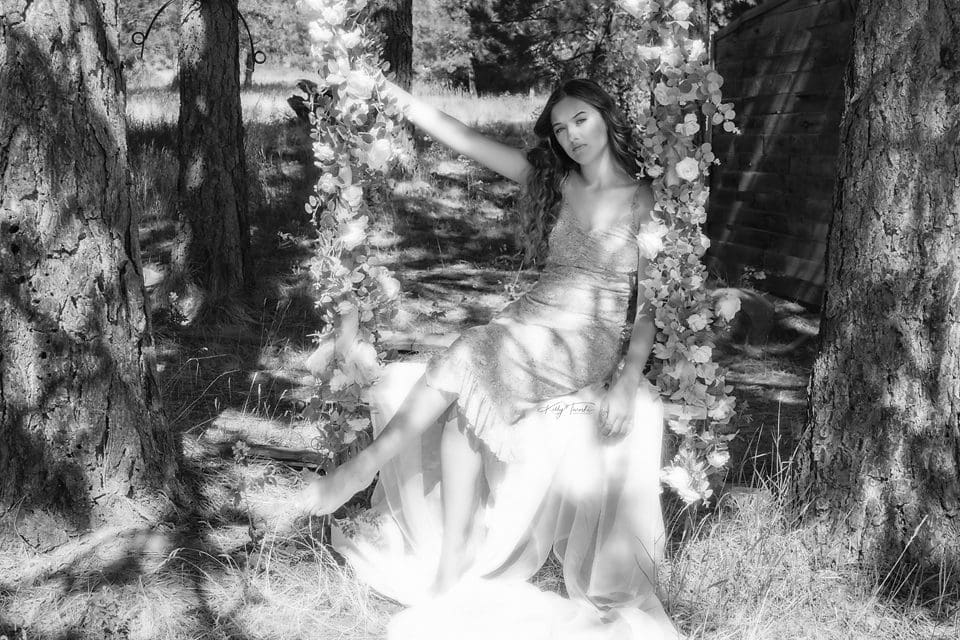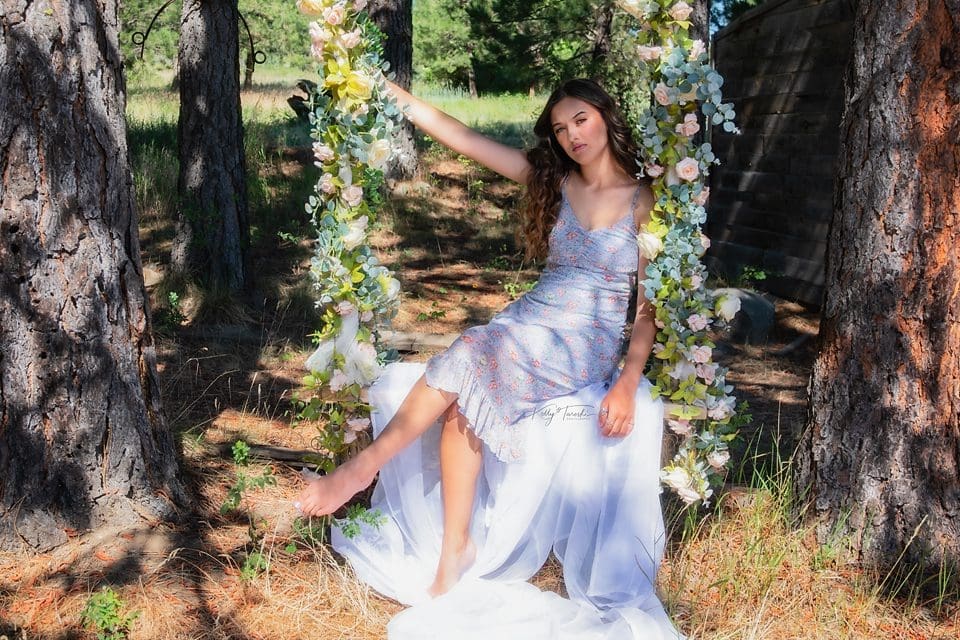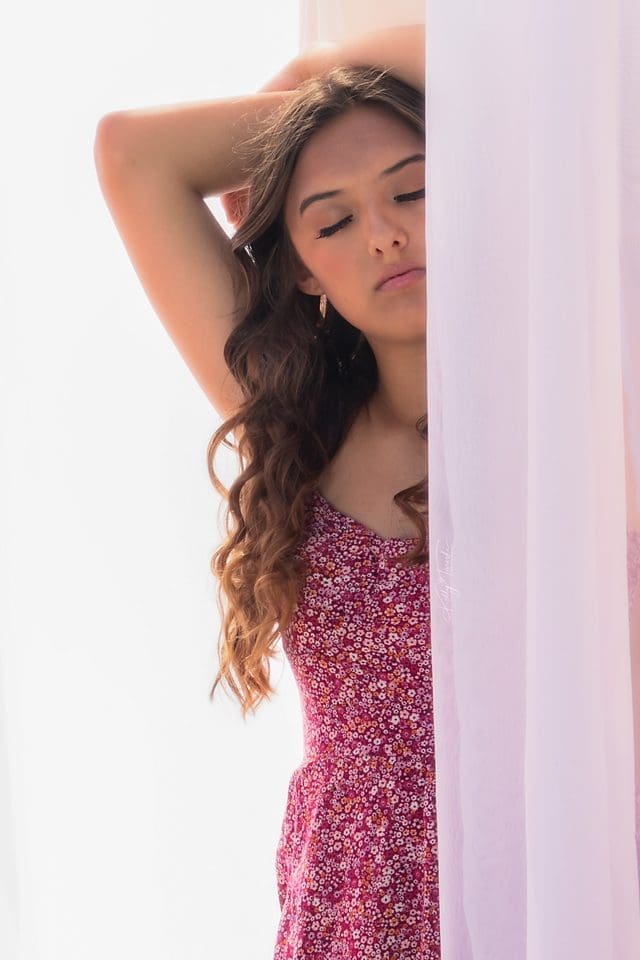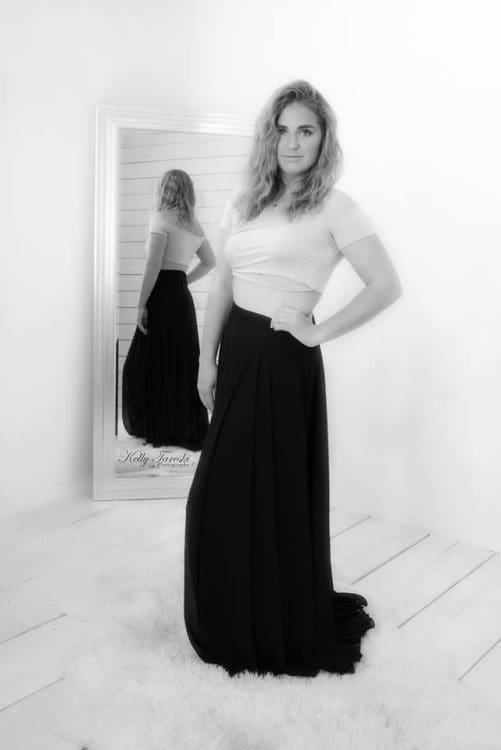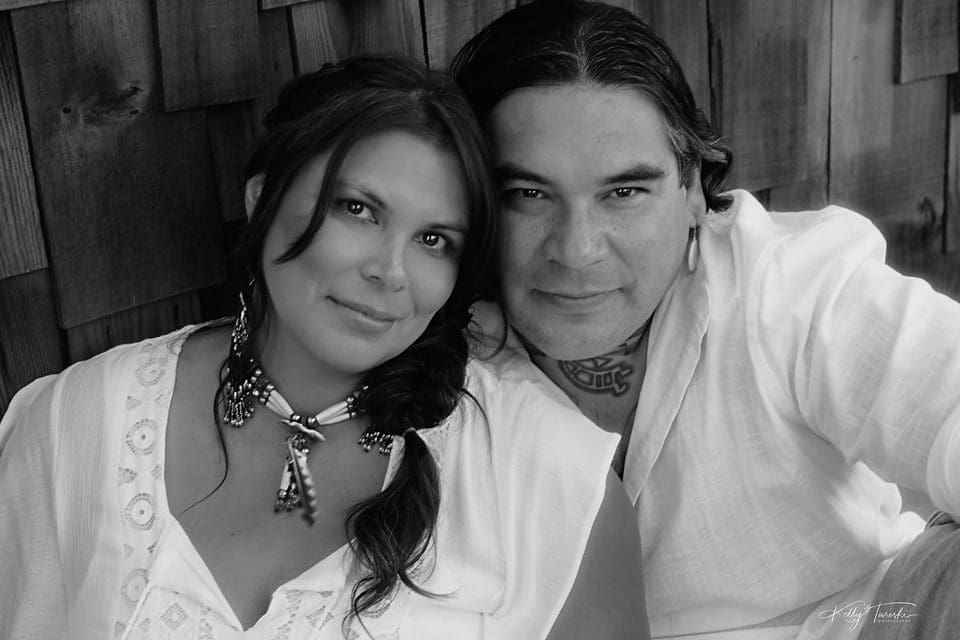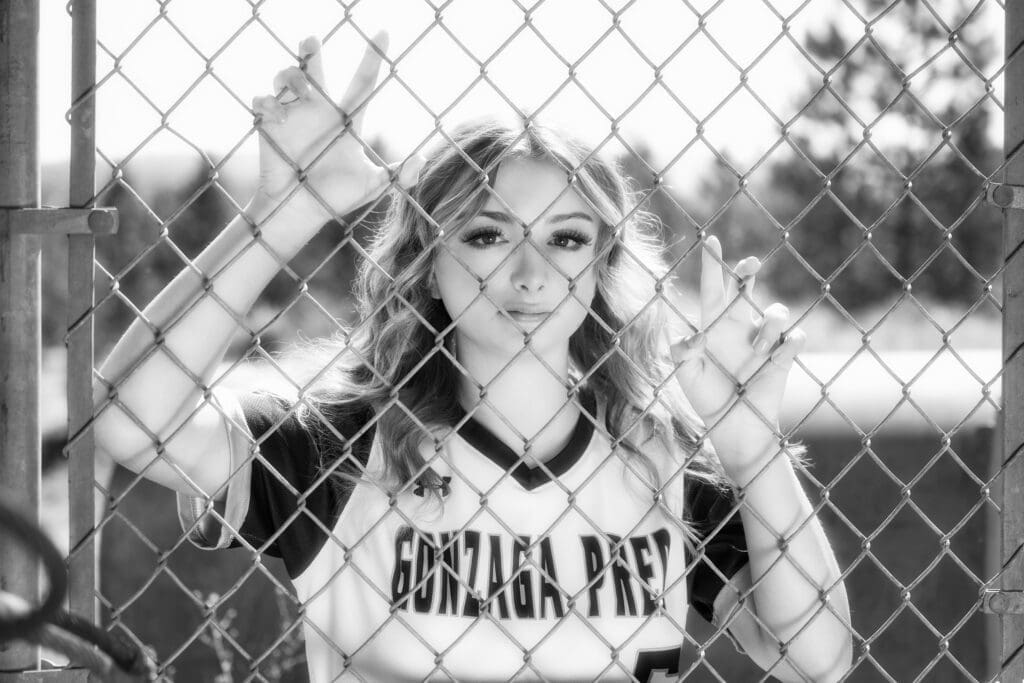
Black and White VS Color Photography
The Age-Old Question: Black and White VS Color Photography
I have had the pleasure of capturing countless memories for my clients over the years at Kelly Tareski Photography. One common question that often arises during consultations is whether to opt for black and white or color photography for their portraits. It's an important decision, as each option carries its own unique qualities and can dramatically affect the mood and impact of the final images.
Timeless Appeal of Black and White
Black and white photography, with its timeless appeal, brings a classic and often more emotional perspective to images. It can strip away distractions, allowing the subject's expressions and the light's play to stand out more starkly. This simplicity often evokes a sense of nostalgia and timeless beauty, making it ideal for creating portraits with a strong, emotional pull.
Vibrancy of Color
On the other hand, color photography captures the vibrancy and energy of the moment in full spectrum. It can enhance the realism of a portrait and offer a more literal depiction of the scene. Color allows the viewer to experience the image as they might have in real life, which can be particularly powerful for family portraits or capturing the essence of a celebratory event.
Both black and white and color photography have their distinct advantages and potential drawbacks depending on the context of the shoot and the intended impact of the photos. Let me delve deeper into the characteristics of each, helping you make a more informed decision that best suits your vision for your portraits.
Black and White Photography
Expanding on the essence of black and white photography, I often explain to my clients at Kelly Tareski Photography that black and white photography is indeed a timeless art form that has been cherished for generations. The absence of color in these photographs isn't a limitation but rather a profound opportunity. By stripping away the distractions of color, these images rely significantly on the interplay of light and shadow, contrast, and texture to tell a story.
This reduction to basics enhances the emotional resonance of the image. Light and shadow become more than just aspects of exposure; they play a crucial role in directing the viewer’s attention and creating a mood. The contrasts between the bright highlights and deep shadows can create a dramatic effect that often evokes a stronger emotional response than color images. It's about seeing the world in gradients of grey, where the nuances of light become the subjects of the photograph themselves.
Furthermore, black and white photography can also simplify the scene, making it easier for the viewer to focus on the essential elements. This focus on basic visual components—lines, shapes, and composition—often evokes a timeless, almost universal quality in the images. It's not just about what is depicted but how it's seen and experienced, lending a certain purity and a classic elegance to the photographs that transcends time and trends.
Advantages of Black and White Photography:
-
Emphasis on Emotion:
One of the most significant advantages of black-and-white photography is its ability to convey emotions powerfully. Without the distraction of color, the viewer's focus shifts to the subject's facial expressions, body language, and the overall mood of the scene. This heightened emphasis on emotion makes black-and-white photography particularly effective in capturing intimate moments and powerful stories.
-
Timeless Appeal:
Black and white photos possess a classic, ageless quality that transcends trends and fads. This timeless appeal makes them a popular choice for those seeking to create enduring memories that can be cherished for years to come.
-
Artistic Flair:
The absence of color in black-and-white photography allows for greater creative expression through contrast, texture, and composition. Photographers can manipulate light and shadow to create visually striking images emphasizing form and structure, often resulting in a more artistic and abstract portrayal of the subject.
Disadvantages of Black and White Photography:
-
Limited Representation of Reality:
One potential drawback of black-and-white photography is that it does not accurately represent the world as we see it. By removing color, some details and nuances within the scene may be lost, making the image less relatable or engaging for the viewer.
-
Less Impactful for Certain Subjects:
While black-and-white photography can be incredibly effective in certain situations, it may not be the best choice for all subjects. For instance, images that rely heavily on color to convey their message or elicit an emotional response may not translate as effectively when rendered in black and white.
Color Photography
In my conversations with clients at Kelly Tareski Photography, I emphasize that color photography captures the world in all its vibrant hues, offering a portrayal that is closer to how we see life with our own eyes. This verisimilitude can make color photographs more relatable and immediate, resonating with viewers by mirroring the world they navigate daily.
The use of color in photography isn't just about replicating reality—it's also a powerful tool to evoke specific emotions. Different colors can convey different moods and atmospheres. For example, warm tones like red and yellow can evoke feelings of warmth and comfort, while cooler tones like blue and green can create a calming and serene atmosphere. The choice of colors in a photograph can dramatically influence what the viewer feels, making color photography incredibly effective for storytelling.
Moreover, color adds layers of meaning and context to an image. It can highlight seasonal changes, cultural elements, or details that might go unnoticed in black and white. For instance, the vibrant colors of a festival, the subtle hues of a sunset, or the distinct colors of a cityscape can provide additional context and depth to the subject matter. This contextual richness can enhance the narrative, allowing the subject's background and environment to play a more active role in the storytelling process.
Overall, color photography offers a dynamic and multifaceted approach to capturing images, making it an excellent choice for conveying the complexity and richness of the world around us. Whether it's enhancing the emotional impact or enriching the narrative with contextual details, color photography uniquely connects with viewers on multiple levels.
Advantages of Color Photography:
-
Vivid Representation of Reality:
Color photography allows for a more accurate depiction of the world as we perceive it. This authenticity can make color images more engaging and relatable, as they capture the essence of a moment in a way that feels true to life.
-
Emotional Impact:
The strategic use of color can profoundly impact the viewer's emotional response to an image. Different colors can evoke various emotions, from the warmth and happiness associated with golden sunlight to the calm and serenity of an incredibly blue sky. Photographers can create images that resonate on a deeper emotional level by incorporating color.
-
Versatility:
Color photography offers greater versatility in terms of subject matter and style. From vibrant landscapes and vivid portraits to subtle still lifes, color photography can effectively capture a wide range of subjects and moods.
Disadvantages of Color Photography:
-
Potential Distractions:
One of the challenges of color photography is that it can sometimes introduce distractions into the image. Bright colors or busy patterns can draw attention away from the main subject, making it difficult for the viewer to focus on the intended message or emotion.
-
Less Timeless:
While color photography can create stunning, impactful images, they may not possess the same timeless appeal as black and white photos. Trends in color palettes and processing techniques can change over time, potentially making color images appear dated or less relevant in the future.
That's a Wrap!
Ultimately, the decision to choose black and white or color photography will depend on your personal preferences, the subject matter, and the desired mood or emotion you wish to convey. Both options have unique merits and can produce beautiful, captivating images when used effectively.
As a photographer, I aim to work closely with my clients to understand their vision and help them choose their portraits best. Whether they opt for the timeless elegance of black and white or the vivid authenticity of color, I am committed to capturing memories that will be cherished for a lifetime.
Both black and white and color photography have distinctive qualities and can produce stunning results when used thoughtfully and skillfully. By understanding the differences between these two styles and considering your photo session's specific needs and goals, you can make an informed decision that will result in images you'll love and treasure for years to come. Join me for a free, no-obligation consultation, and let's find the style that best tells your story!
Black and White VS Color Photography
Related Articles to Education
-
Preparing For Your Family Photos – Spokane
-
Spokane Photography – Showcasing a Region
-
Spokane Photographers – How To Choose
-
More about Children’s Photography In Spokane
-
What is a Professional Photographer?
-
The Importance of Senior Portrait Photography Spokane
-
Legacy Portrait Photography in Spokane
-
Prepare with Pinterest Spokane Boudoir
-
Choosing Professional Portrait Photography Spokane
-
The Importance of Children’s Photography in Spokane
-
How to Choose A Photographer In Spokane
-
Indoor Photography Studios Spokane – Kelly Tareski Photography
-
How to choose the right photographer
-
Benefits of Accreditation for Photographers
-
Why Hiring An Accredited Photographer Matters
-
My Journey to Accreditation – The Portrait Masters
-
Elevating Spokane Modeling Photography
-
Ultimate Survival Guide for a Family Photo Shoot
-
Top Ten Questions to Ask a Professional Photographer
-
Your Guide To Choosing A Professional Photographer
-
A Journey through 10 Diverse Photography Genres
-
Hair and Makeup for Portrait Photography Spokane – Kelly Tareski Photography
-
A Comprehensive Guide to Capturing Stunning Portraits
-
The Four Seasons of Portrait Photography
-
The Difference Between Graduation Photos and Senior Pictures
-
Black and White VS Color Photography
-
The History Of Spokane Photographers
-
Top Ten Life Events That Call for a Professional Photographer
-
The Evolution of Photography
-
A Labor of Love-Building The Warehouse Door Garden Gate
-
Five Tips for Nailing Your Boudoir Photography Shoot
-
Lifestyle Photography Sessions Explained
-
The Ultimate Guide to Capturing the Perfect Family Portrait
-
Step into the Dramatic Grey Studio
More Education Posts
-
Whimsical White Studio – How I Create Amazing Photos
-
My Magical Retro-Themed Cabin Studio
-
Get Creative! Five Unique Ways to Personalize Your Family Photos
-
Five Birthday Milestones That Call For Professional Photography
-
Five Tips for Gorgeous Outdoor Photos
-
Tips to Look Your Best in Professional Photos
-
The Importance of a Photography Consultation
-
Five Reasons You Need Professional Prints For Your Photos
-
A Photography Reveal Session Explained
-
5 Hair and Makeup Tips for the Perfect Photography Session
-
6 Senior Photo Shoot Mistakes to Avoid in 2023
-
The Importance of Editing for Professional Photography
-
A Glimpse Into The Past at Kelly Tareski Photography - 2019
-
Being a Photographer in Washington State - Spokane
-
Why Quality Equipment is Essential in Photography
-
Natural Light and Studio Lighting for Photography
-
Enhancing Photography With Natural Light
-
Five Tips for Using Studio Lighting in Photography
-
Understanding the Cost of Professional Photography
-
Amazing Metal Prints for Your Home
-
Canvas Prints - Affordable and Beautiful
-
Bring Vintage Into Your Life With The Retro Viewer
-
Photographers In North Spokane Washington
-
Photographer Near Me - Spokane Washington
-
Photographers Near the Spokane Valley
-
Professional Photographers Near Cheney Washington
-
Professional Photographers Near Medical Lake Washington
-
Professional Photographers Near Reardan Washington
-
Professional Photographers Near Davenport Washington
-
Professional Photographers Near Deer Park Washington
-
Professional Photographers Near Liberty Lake Washington
-
Professional Photographers Near Airway Heights Washington
-
Professional Photographers Near Millwood Washington
-
Professional Photographers Near Chewelah Washington
-
Professional Photographers Near Colville Washington
-
Professional Photographers Near Newport Washington
-
Professional Photographers Near Kettle Falls Washington
-
Professional Photographers Near Mead Washington
-
Professional Photographers Near Springdale Washington
-
Professional Photographers Near Spangle Washington
-
Professional Photographers Near Valleyford Washington
-
Professional Photographers Near Rockford Washington
-
Professional Photographers Near Fairfield Washington
-
Professional Photographers Near Rosalia Washington
-
Professional Photographers Near Colfax Washington
-
Professional Photographers Near Loon Lake Washington
-
Professional Photographers Near Harrington Washington
-
Professional Photographers Near Tekoa Washington
-
Professional Photographers Near Chattaroy Washington
-
Professional Photographers Near Colbert Washington
-
Professional Photographers Near Northport Washington
-
Professional Photographers Near Metaline Falls Washington
-
Professional Photographers Near Post Falls Idaho
-
Professional Photographers Near Coeur d'Alene Idaho
-
Professional Photographers Near Rathdrum Idaho
-
Professional Photographers Near Blanchard Idaho



